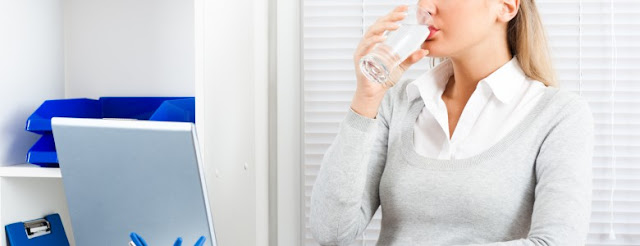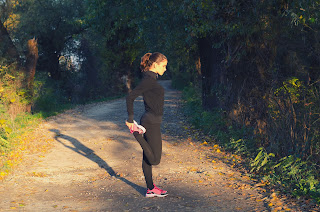Four ways to start 2017 on a healthier note
Colder temperatures, shorter days and a journey home in the
dark see many workers go between home, car and workplace without seeing much
daylight in the winter months.
Being cooped up indoors makes our vitamin D levels drop at
this time of year and also makes us much more susceptible to coughs and colds.
Experts say that people spending more time indoors together
is one of the reasons why we catch more bugs in the winter. Workplaces
contribute to the problem because they involve a significant number of people
working in close proximity, often sharing devices and desks, making it easier
to pick up each other’s germs.
With sickness absence costing around £500 per person per
year, it makes financial sense for businesses to promote good health practices
and ensure the workplace is equipped to combat infection.
So, what can you do to fight back against the seasonal bugs?
Here are four steps to staying well at work in the colder months:
1. Wash your hands
Handwashing is huge in the fight against infection.
If just one person comes into work unwell, their virus can
spread through an office in two to four hours, infecting 40-60% of workers and
visitors in that time. All it takes is for the sick employee to shake another
person’s hand, or touch a shared surface, for infection to be passed on very
easily.
Employers who want to cut sickness rates and improve
productivity should promote handwashing across the board, not just among food
or care workers. Employees should use soap and water after visiting the
washroom, before eating or handling food, going into meetings, on returning to
the office or using shared equipment.
Carex Hand Wash comes in 250-500ml sizes and includes
antibacterial and moisturising ingredients designed to kill germs and leave
hands feeling fresh and clean.
2Work offers a selection of wall mountable soap dispensers
that can be bulk filled for busy washrooms, including a choice of eco friendly
formulations.
2. Clean your desk and devices
Bacteria rests on equipment, such as keyboards, telephones,
headsets, touch-screens, desks and printers and this is spread via coughs,
sneezes and hands.
Germs can live on surfaces for around 24 hours, which means
anyone transmitting bacteria to a phone receiver, touch screen or keyboard can
pass on a cold or tummy bug easily.
Keeping and using cleaning wipes on your desk, devices and
telephone regularly will only take a matter of seconds and could save you and
your colleagues several days of illness. If you use a hot desk then this
matters even more.
AF International offers a range of device and telephone
cleaning wipes including AF Phone Clene, antibacterial wipes which are quick
and easy to use on phones and kill germs for up to 24 hours.
Dettol Antibacterial Surface Wipes are safe to use in a wide
range of areas including food preparation as they are non-tainting and
unperfumed.
3. Provide tissues
Providing boxes of tissues to workers is not purely an act
of politeness. By ensuring everyone has tissues on their desks, they’re more
likely to use and bin these, rather than getting germs on their hands which
will end up on shared surfaces such as door handles.
Kleenex tissues come in boxes, cubes and a unique oval
shape, with 2-ply or 3-ply tissues that can be kept on desks and used in a
variety of environments. Kleenex Balsam tissues have a balm containing
calendula that prevents noses from drying out and becoming red or sore.
4. Get out more
Wrapping up warm and getting outside for some fresh air at
lunchtime is not just a good way to escape the workplace for a little time but
also brings big health benefits. Regular exercise helps to control weight,
boost our immune systems and is a good way to de-stress in the middle of a busy
day.
It’s easy to hibernate behind a desk in the cold winter
months, but try not to fall into this trap. Put on your coat and gloves and
make the most of whatever outdoor space is near to work, whether that’s doing
fast walking circuits around an office park, hotfooting it to your nearest
green space or speed walking along city streets.








Comments
Post a Comment